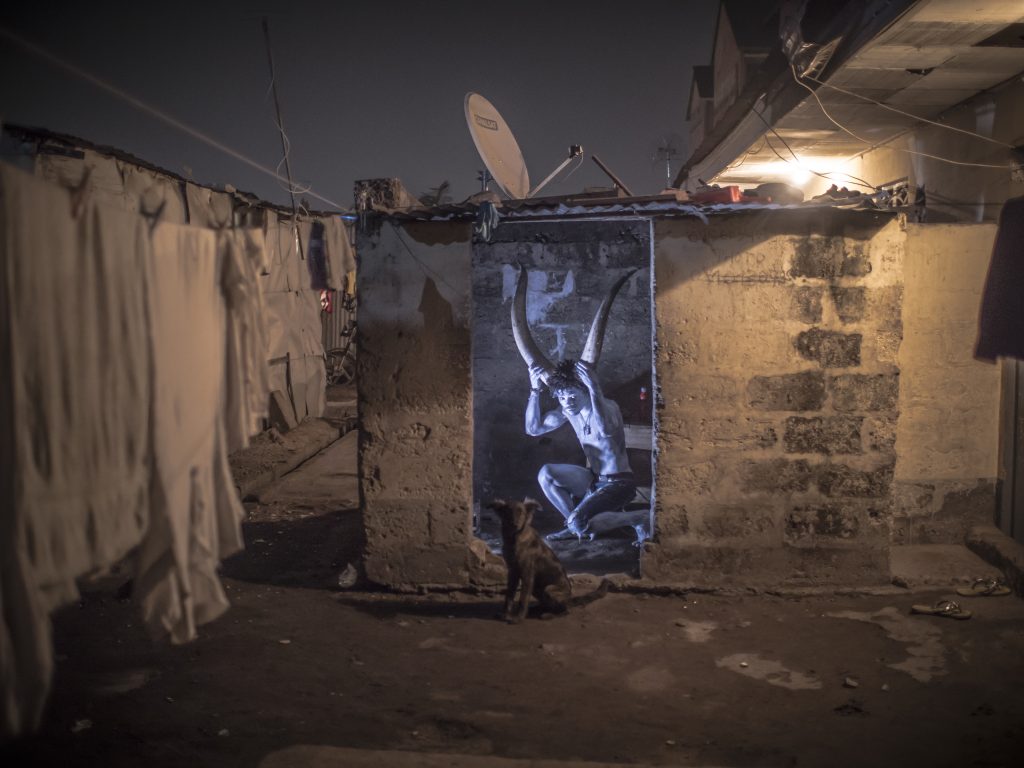
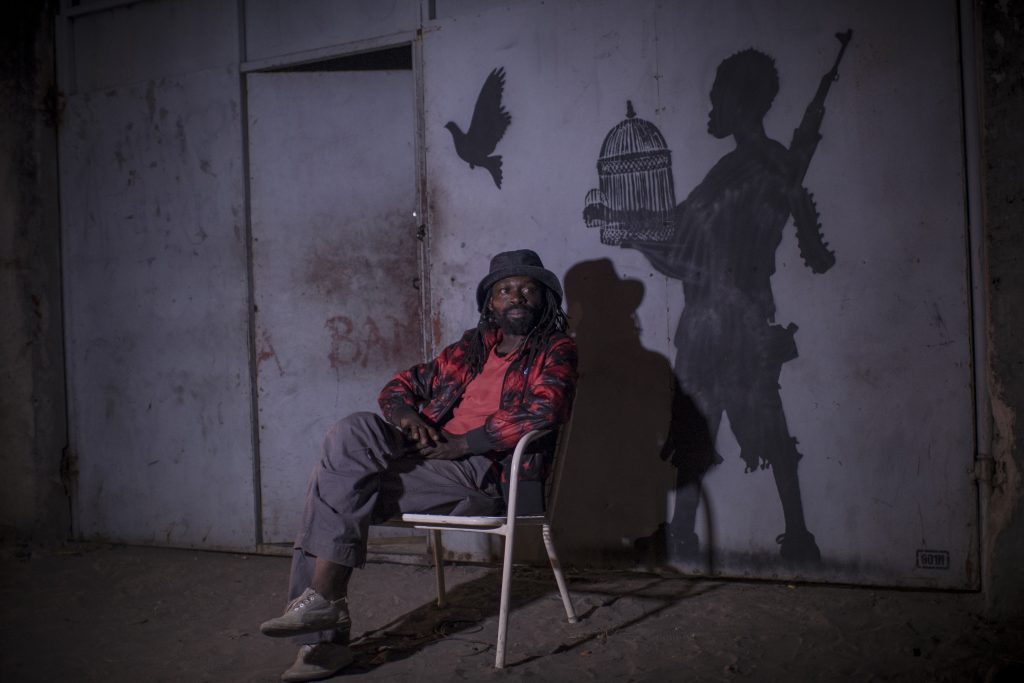
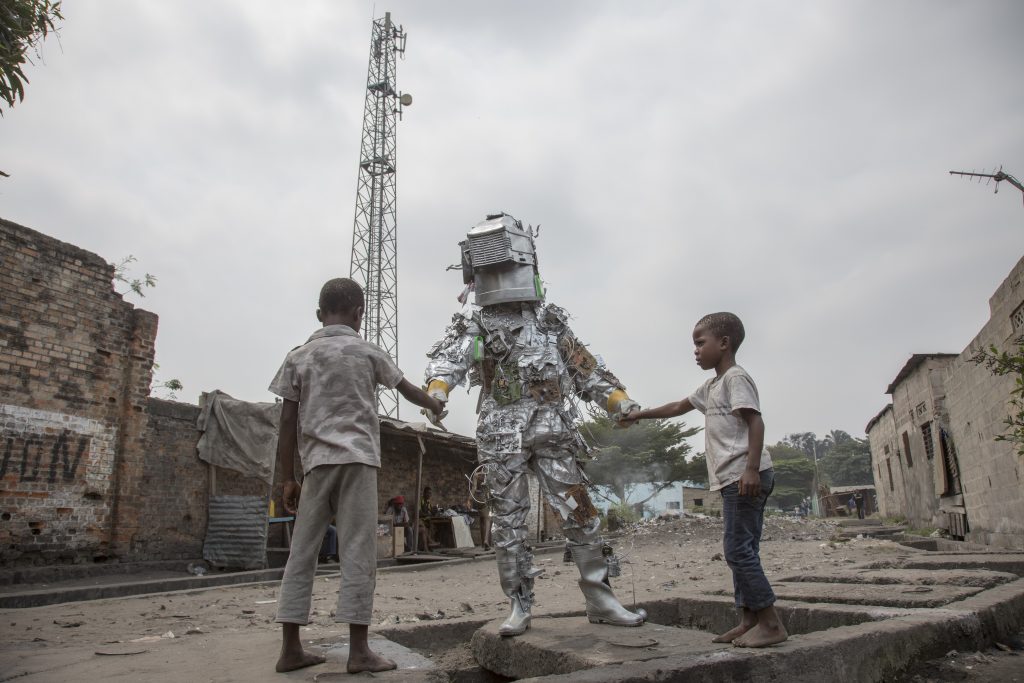
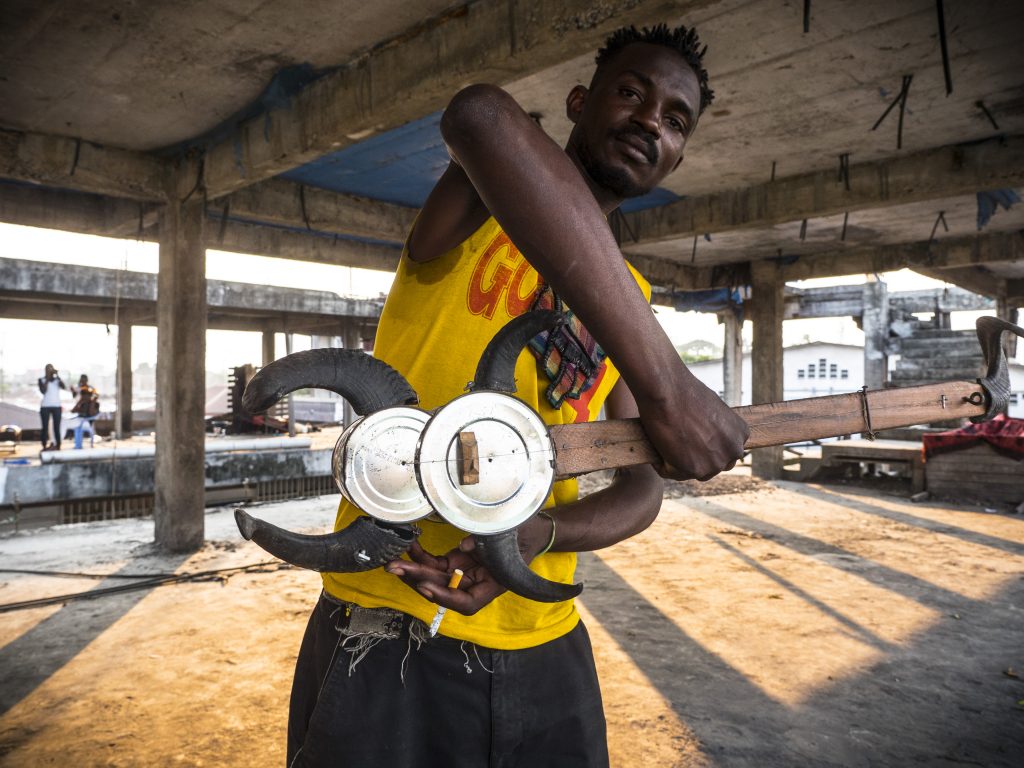
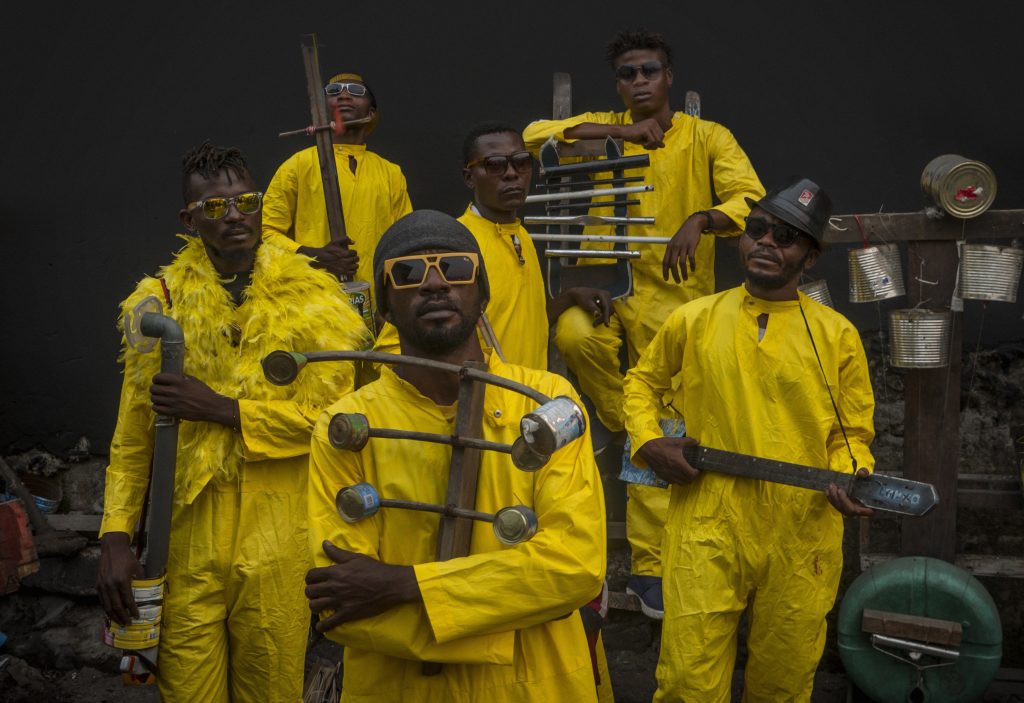
By Genevieve Bland, Volunteer Woman Reporter for Bristol Women’s Voice
“Art is everywhere, offered to people who have the power to see” according to Kokoko, a street artist in the Democratic Republic of Congo and one of the subjects in Renauld Barrett’s documentary, shown as part of the ‘Afrika Eye Film Festival’ running until 22 November.
Streets: Art’s Urban Canvas Source
The documentary,’Systeme K,’ explores the lives of street artists in Kinshasa, a city grappling with scarcity of electricity and where running water is considered a luxury.
In a city concealed beneath layers of trash, the film introduces us to individuals like Freddy Tsimba. Freddy uses the discarded items he finds on the streets to create thought-provoking sculptures, such as houses made from machetes, silhouettes crafted from beer capsules, and female figures made from bullets; hands against the wall, legs spread, underwear pulled down…
Freddy says: “Kinshasa is a trap; us artists try to escape through our creation and stand as our rebellion”; encapsulating a recurring theme in the film that Kinshasa is both a challenging place suffused with pain and hardship and a wellspring of inspiration for its artists.
The artists in Kinshasa turn bustling marketplaces and dimly lit nightlife into their performance arena, with provocative acts being their specialty. Their repertoire ranges from men dressed as living lightbulbs (a stark contrast to the lack of streetlights), to a man with hands and feet bound, wielding a Bible while rolling in dirty sidewalks, to an Astronaut aimlessly wandering the streets, and a man in a bath with goat blood pouring over him. These are the sights one may encounter while strolling through the vibrant streets of Kinshasa.
Art and Injustice
Amidst this vibrant chaos, the documentary introduces the sole female artist, ‘Geraldine,’ who creates haunting paintings using a process involving fire and smoke. Geraldine shares her painful past, revealing that, like many artists, she was accused of being a witch as a child, leading to agonising deliverance ceremonies and exorcisms. She emphasises the scarcity of women in the artist community, attributing it to societal pressures and gender stereotypes that confine them to domestic roles: “squashed by society and their men”. Geraldine chose to defy these norms, deciding to stop following the rules and live solely for her art.
The documentary reveals injustice in a resource-rich country, emphasising coltan’s importance in Western modern electronics but citizens gain no benefits; foreign companies exploit local child labour and worsen environmental issues by discarding obsolete electronics back to the Congo.
Kinshasa is portrayed as a place overwhelmed by poverty and pain, but the feverish art produced by local artists is a testament to pure beauty and serves as a poignant reminder of the crucial role artists play in society: to reveal the unspeakable and prompt reflection on one’s condition.
About Afrika Eye Festival
Afrika Eye (www.afrikaeye.org.uk) was founded in 2005 by two Bristol-based filmmakers: Zimbabwe-born Simon Bright and Ingrid Sinclair who lived and worked in southern Africa for nearly 20 years.
Its current director is Annie Menter, formerly the director of the WOMAD Foundation and still the curator of the Taste the World food and music events which have been part of WOMAD’s UK festivals since 2006, and its producer is Esther Afikiruweh.
The festival’s mission is to offer audiences of all ages and backgrounds opportunities to explore the richness of African creativity, culture and history, using film and arts to challenge the stereotypes, dispel the myths and uncover more about the ever-changing social and political landscape of the continent of Africa and the diaspora.

